Outline:
I. Opening Thoughts on Civilization and Barbarism
II. Buck’s Early Aristocratic Beginnings
III. Buck’s Education in the Law of Club and Fang
IV. Can the Virtues of Civilization and Barbarism be Combined?
Key Quotation:
“There is an ecstasy that marks the summit of life, and beyond which life cannot rise. And such is the paradox of living, this ecstasy comes when one is most alive, and it comes a complete forgetfulness that one is alive. This ecstasy, this forgetfulness of living, comes to the artist, caught up and out of himself in a sheet of flame; it comes to the soldier, war-mad on a stricken field and refusing quarter; and it came to Buck, leading the pack, sounding the old wolf-cry, straining after the food that was alive and that fled swiftly before him through the moonlight. He was sounding the deeps of his nature, and of the parts of his nature that were deeper than he, going back into the womb of Time. He was mastered by the sheer surging of life, the tidal wave of being, the perfect joy of each separate muscle, joint and sinew in that it was everything that was not death, that it was aglow and rampant, expressing itself in movement, flying exultantly under the stars and over the face of dead matter that did not live” (pg. 46; emphasis added)
What is going on this passage? Why does London compare the soldier to Buck? More strikingly, why does London compare the artist to Buck?!



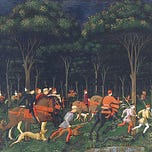




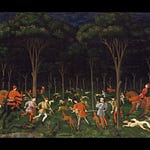
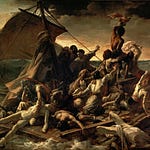

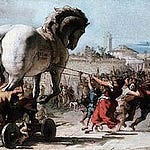


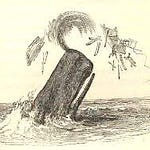
Share this post